August 4 stands as one of history’s most eventful days, witnessing the rise and fall of empires, groundbreaking discoveries, and moments that shaped our modern world across centuries of human achievement.

Politics and Government Events on August 4
1914 – Britain and Belgium Declare War on Germany
World War I escalated dramatically as Belgium and the British Empire declared war on Germany following the German invasion of Belgium. The United States simultaneously declared its neutrality in the expanding conflict.
This pivotal moment transformed a regional dispute into a global war. The declarations marked the beginning of Britain’s massive military mobilization across its empire.
1936 – Greek Democracy Suspended Under Metaxas
Greek Prime Minister Ioannis Metaxas suspended parliament and the Constitution, establishing the authoritarian 4th of August Regime. His decisive action eliminated democratic institutions across the nation.
The regime would govern Greece until the Italian invasion of 1940. Metaxas justified his actions as necessary to prevent communist revolution and political chaos.
1964 – Civil Rights Workers Found Dead in Mississippi
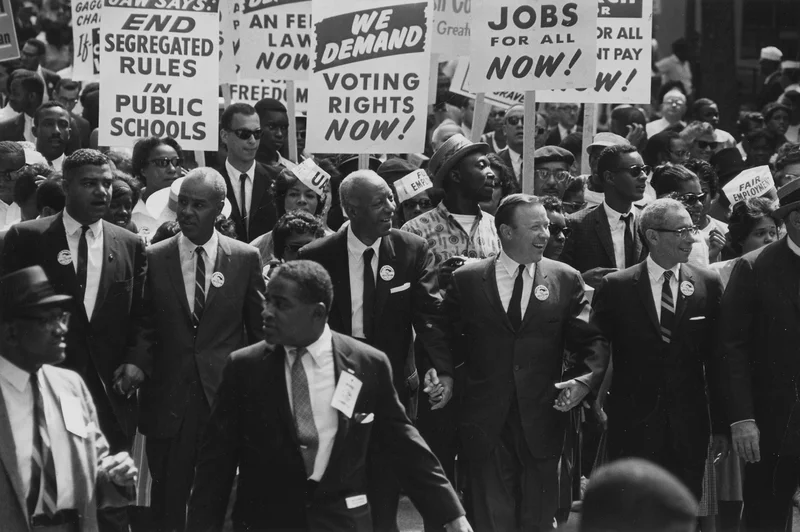
The bodies of civil rights workers Michael Schwerner, Andrew Goodman, and James Chaney were discovered in Mississippi after disappearing on June 21. Their murders shocked the nation and galvanized support for civil rights legislation.
The FBI’s massive investigation exposed widespread Ku Klux Klan involvement in the killings. The tragedy became a defining moment in the struggle for racial equality in America.
1977 – Department of Energy Established
President Jimmy Carter signed legislation creating the United States Department of Energy, consolidating various federal energy programs. The new department aimed to address the nation’s growing energy crisis and reduce dependence on foreign oil.
The legislation reflected growing concerns about energy security following the 1973 oil embargo. The department would oversee nuclear weapons production and promote alternative energy sources.
1984 – Upper Volta Becomes Burkina Faso
The Republic of Upper Volta officially changed its name to Burkina Faso under Thomas Sankara’s revolutionary government. The new name meant “Land of Upright People” in the local languages.
Sankara implemented this change as part of his broader program to reject colonial legacy and promote African identity. The renaming symbolized the nation’s commitment to pan-African ideals and self-determination.
2018 – Assassination Attempt on Venezuelan President

Two explosive-laden drones detonated on Avenida Bolívar in Caracas while President Nicolás Maduro addressed the Venezuelan National Guard. Seven people sustained injuries in the unprecedented attack.
The incident marked the first known drone assassination attempt against a world leader. Venezuelan authorities blamed opposition groups and foreign governments for orchestrating the attack.
Military and Naval History on August 4
1915 – German Forces Occupy Warsaw
The German 12th Army captured Warsaw during the Gorlice-Tarnów Offensive, forcing Russian troops into the Great Retreat of 1915. The occupation marked a significant German victory on the Eastern Front.
Russian forces abandoned the Polish capital after fierce resistance throughout the summer campaign. The German advance threatened to knock Russia out of the war entirely.
1944 – Finnish Parliament Elects Mannerheim President
Under emergency law, the Finnish Parliament elected Marshal C.G.E. Mannerheim as President to replace the resigned Risto Ryti. Mannerheim’s appointment came as Finland sought separate peace negotiations with the Soviet Union.
The legendary military commander accepted the presidency reluctantly at age 77. His election marked Finland’s final attempt to withdraw from its alliance with Nazi Germany.
1964 – Gulf of Tonkin Incident Escalates
USS Maddox and USS Turner Joy mistakenly reported coming under attack in the Gulf of Tonkin during the Second Gulf of Tonkin Incident. The false reports would provide justification for expanded American involvement in Vietnam.
Naval commanders later acknowledged that no North Vietnamese attack had occurred. The incident became one of the most controversial justifications for military escalation in American history.
1975 – Japanese Red Army Hostage Crisis
The Japanese Red Army seized over 50 hostages at the AIA Building in Kuala Lumpur, including the U.S. consul and Swedish Chargé d’affaires. The terrorists demanded the release of five imprisoned comrades.
Malaysian authorities negotiated the release of all hostages in exchange for the prisoners. The gunmen and their freed comrades flew to Libya, marking a successful terrorist operation.
1995 – Operation Storm Launches in Croatia
Croatian forces launched Operation Storm, the largest military offensive of the Croatian War of Independence. The operation aimed to recapture Serbian-controlled territories in the Krajina region.
The four-day offensive would successfully reclaim most occupied Croatian territory. The operation marked the beginning of the end for Serbian resistance in Croatia.
2023 – Syrian Democratic Forces Secure Iraq Border
The Syrian Democratic Forces expelled the Islamic State from the Iraq-Syria border, concluding the second phase of the Deir ez-Zor campaign. The victory eliminated ISIS control over strategic border crossings.
The operation represented a major defeat for the terrorist organization’s territorial ambitions. International coalition forces provided crucial air support throughout the campaign.
Science and Discovery Milestones on August 4
2007 – NASA Launches Phoenix Mars Mission
NASA successfully launched the Phoenix spacecraft on its mission to Mars, designed to study water ice in Martian soil. The robotic lander carried sophisticated instruments to analyze the planet’s northern polar region.
Phoenix would land successfully on Mars in May 2008, confirming the presence of water ice beneath the surface. The mission provided crucial data about Mars’ potential habitability and climate history.
2020 – Beirut Port Explosion Devastates City

A massive explosion of 2,700 tons of ammonium nitrate killed at least 220 people and wounded over 5,000 in Beirut, Lebanon. The blast destroyed much of the city’s port and damaged buildings across the capital.
The explosion registered as a 3.3 magnitude earthquake and was heard 250 kilometers away. The disaster highlighted dangerous storage practices for industrial chemicals in urban areas.
1947 – Supreme Court of Japan Established

Japan’s new postwar constitution established the Supreme Court of Japan as the nation’s highest judicial authority. The court replaced the previous imperial court system with democratic judicial review.
The new court gained the power to declare laws unconstitutional, fundamentally changing Japan’s legal system. American occupation authorities influenced the court’s structure and independence.
Cultural and Arts Events on August 4
1944 – Anne Frank Captured by Nazis

A Dutch informer’s tip led the Gestapo to discover Anne Frank, her family, and four others hiding in an Amsterdam warehouse. The arrest ended their two-year concealment from Nazi persecution.
Anne Frank’s diary, left behind in the secret annex, would become one of the most powerful Holocaust testimonies. Her capture occurred just months before Amsterdam’s liberation by Allied forces.
1974 – Italicus Express Bombing

A terrorist bomb exploded on the Italicus Express train at San Benedetto Val di Sambro, Italy, killing 12 people and wounding 22. The attack was part of Italy’s “Years of Lead” political violence.
Investigators linked the bombing to neo-fascist groups attempting to destabilize Italian democracy. The massacre highlighted the ongoing threat of domestic terrorism in 1970s Italy.
1987 – FCC Eliminates Fairness Doctrine
The Federal Communications Commission rescinded the Fairness Doctrine, which had required radio and television stations to present opposing viewpoints on controversial issues. The decision fundamentally changed American broadcast journalism.
The elimination allowed media outlets to adopt more partisan editorial positions. Critics argued the change would reduce balanced coverage of political issues.
Religious and Social Events on August 4
1972 – Uganda Expels Asian Population
Ugandan President Idi Amin announced that Uganda would no longer care for British subjects of Asian origin, beginning mass expulsions. The decree affected approximately 80,000 people of Indian and Pakistani descent.
The expulsions devastated Uganda’s economy as the Asian community controlled much of the nation’s commerce. Many expelled families lost their businesses and properties without compensation.
1921 – Bolsheviks Defeat Makhnovshchina
Mikhail Frunze declared victory over the Makhnovshchina, ending the anarchist movement’s resistance in Ukraine. The defeat eliminated the last major opposition to Bolshevik control in the region.
The anarchist forces led by Nestor Makhno had controlled parts of Ukraine since 1918. Their defeat consolidated Soviet power across the former Russian Empire’s territory.
1946 – Dominican Republic Earthquake
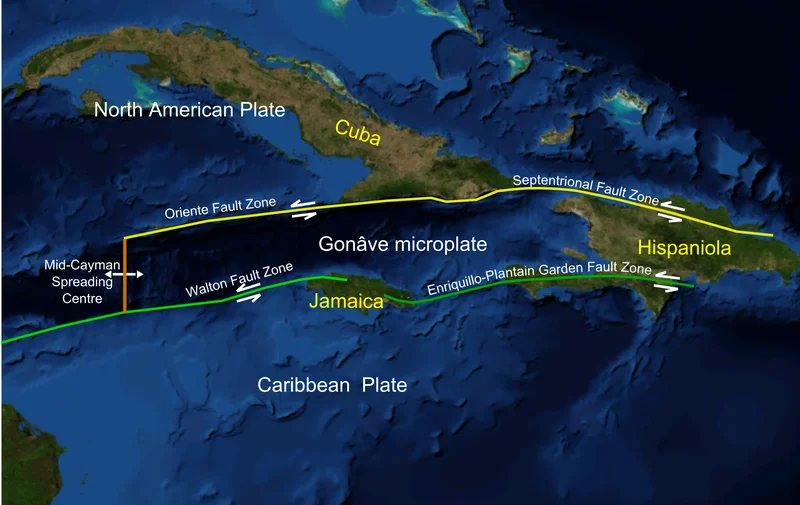
A magnitude 8.0 earthquake struck northern Dominican Republic, killing 100 people and leaving 20,000 homeless. The disaster caused widespread destruction across the Caribbean nation.
The earthquake triggered landslides and building collapses throughout the affected region. International aid organizations provided emergency relief to displaced families.
Business and Economic Events on August 4
1924 – Mexico and Soviet Union Establish Relations
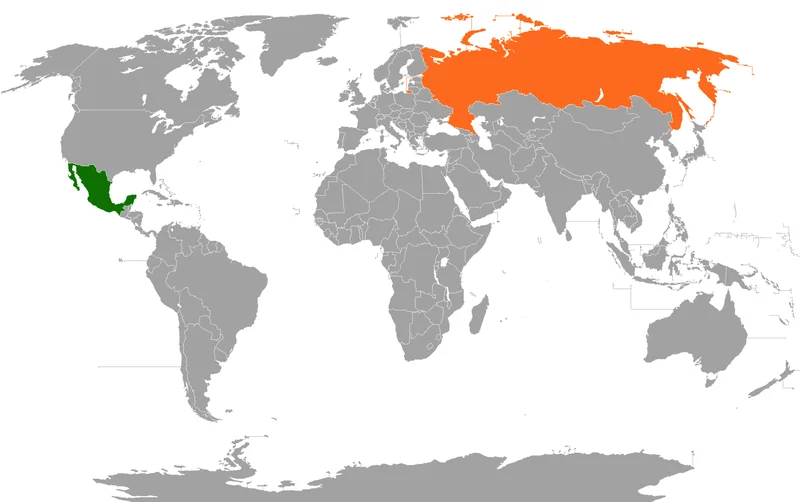
Mexico and the Soviet Union established diplomatic relations, making Mexico one of the first countries to recognize the communist government. The agreement opened new trade possibilities between the nations.
The relationship reflected Mexico’s independent foreign policy following its own revolution. Both countries sought to challenge American influence in their respective regions.
1983 – Military Coup in Upper Volta

Captain Thomas Sankara led a successful coup against President Jean-Baptiste Ouédraogo in Upper Volta. The young officer promised revolutionary changes to improve the nation’s economy and social conditions.
Sankara implemented radical reforms including land redistribution and anti-corruption campaigns. His policies aimed to reduce dependence on foreign aid and promote self-sufficiency.
1965 – Cook Islands Gain Self-Government
The Constitution of the Cook Islands came into force, granting the islands self-governing status within New Zealand. The arrangement provided local autonomy while maintaining New Zealand citizenship.
The new constitution established a parliamentary system with a prime minister and cabinet. The Cook Islands retained New Zealand’s responsibility for defense and foreign affairs.
Transportation and Infrastructure on August 4
1969 – Secret Vietnam Peace Talks Begin
Henry Kissinger and North Vietnamese representative Xuân Thuỷ began secret peace negotiations in Paris at French intermediary Jean Sainteny’s apartment. The talks aimed to end the prolonged Vietnam War.
The negotiations would continue for several years before ultimately failing to achieve peace. The secret diplomacy bypassed official peace conferences that had stalled.
2006 – Sri Lankan Forces Attack Aid Workers
Sri Lankan government forces killed 17 employees of the French humanitarian organization Action Against Hunger in a deliberate massacre. The attack shocked the international aid community.
The killings occurred during the renewed civil war between government forces and Tamil Tigers. The massacre highlighted the dangers facing humanitarian workers in conflict zones.
2019 – Dayton Mass Shooting

A gunman killed nine people and injured 26 others in a shooting in Dayton, Ohio, occurring just 13 hours after another mass shooting in El Paso, Texas. The rapid succession of attacks horrified the nation.
Police officers killed the gunman within 32 seconds of the attack beginning. The incident reignited debates about gun control and domestic terrorism in America.
Sports and Recreation on August 4
1915 – Baseball Player Born

Bill Hallahan entered the world in Binghamton, New York, beginning a life that would lead to Major League Baseball stardom. His left-handed pitching would earn him the nickname “Wild Bill.”
Hallahan would become a key pitcher for the St. Louis Cardinals during their championship years. His career spanned the 1920s and 1930s, including two World Series victories.
1934 – Baseball Manager Born

Dallas Green was born in Newport, Delaware, launching a career that would span playing, managing, and executive roles in Major League Baseball. His leadership style would define multiple franchises.
Green would manage the Philadelphia Phillies to their first World Series championship in 1980. His demanding approach and baseball knowledge made him one of the sport’s most respected figures.
1971 – NASCAR Champion Born

Jeff Gordon was born in Vallejo, California, beginning a journey that would revolutionize NASCAR racing. His early start in go-karts and sprint cars prepared him for legendary success.
Gordon would win four NASCAR Cup Series championships and 93 races during his career. His popularity helped transform NASCAR from a regional sport into a national phenomenon.
Notable Births on August 4
1901 – Louis Armstrong, Jazz Legend

Louis Armstrong was born in New Orleans, Louisiana, destined to become one of the most influential musicians in American history. His childhood in the birthplace of jazz shaped his revolutionary musical style.
Armstrong’s trumpet playing and distinctive vocals would define jazz music for generations. His innovations in improvisation and swing rhythm transformed popular music worldwide.
1912 – Raoul Wallenberg, Humanitarian Hero

Swedish diplomat Raoul Wallenberg was born in Stockholm, beginning a life dedicated to saving others. His architectural training prepared him for unexpected wartime heroism.
Wallenberg would save thousands of Hungarian Jews during World War II through diplomatic protection. His mysterious disappearance in Soviet custody remains one of history’s great unsolved mysteries.
1920 – Helen Thomas, Pioneering Journalist

Helen Thomas was born in Winchester, Kentucky, starting a career that would break barriers for women in journalism. Her determination overcame numerous obstacles in the male-dominated field.
Thomas became the first female White House correspondent and covered every president from Kennedy to Obama. Her persistent questioning and dedication to truth made her a journalism icon.
1955 – Billy Bob Thornton, Entertainment Icon

Billy Bob Thornton was born in Hot Springs, Arkansas, launching a multifaceted career in entertainment. His Southern upbringing would influence his distinctive acting and writing style.
Thornton would win an Academy Award for writing “Sling Blade” and achieve success as an actor, director, and musician. His versatility made him one of Hollywood’s most respected talents.
1961 – Barack Obama, 44th President

Barack Obama was born in Honolulu, Hawaii, beginning a journey that would lead to the presidency. His multicultural background and intellectual curiosity shaped his worldview.
Obama would become the first African American president and win the Nobel Peace Prize. His eloquence and vision inspired millions while navigating complex domestic and international challenges.
1962 – Roger Clemens, Baseball Star

Roger Clemens was born in Dayton, Ohio, starting a career that would make him one of baseball’s greatest pitchers. His powerful right arm would dominate hitters for over two decades.
Clemens would win seven Cy Young Awards and 354 games during his career. His competitive intensity and exceptional skill made him one of the most dominant pitchers in baseball history.
1965 – Dennis Lehane, Master Storyteller

Dennis Lehane was born in Boston, Massachusetts, beginning a literary career that would captivate readers worldwide. His intimate knowledge of Boston neighborhoods would inform his compelling narratives.
Lehane’s crime novels, including “Mystic River” and “Gone Baby Gone,” would be adapted into acclaimed films. His psychological depth and authentic dialogue established him as a master of the genre.
1968 – Daniel Dae Kim, Television Star

Daniel Dae Kim was born in Busan, South Korea, immigrating to America where he would become a prominent actor. His journey represented the changing face of American entertainment.
Kim would gain fame through roles in “Lost” and “Hawaii Five-0,” becoming a prominent Asian American actor. His advocacy for diversity in Hollywood helped create opportunities for other minority performers.
Notable Deaths on August 4
1962 – Marilyn Monroe, Hollywood Icon

Marilyn Monroe died in Los Angeles at age 36, ending one of the most celebrated careers in Hollywood history. Her death shocked the world and sparked decades of speculation about the circumstances.
Monroe had become the ultimate symbol of American glamour and sexuality. Her films and persona continued to influence popular culture long after her tragic death.
1981 – Melvyn Douglas, Distinguished Actor
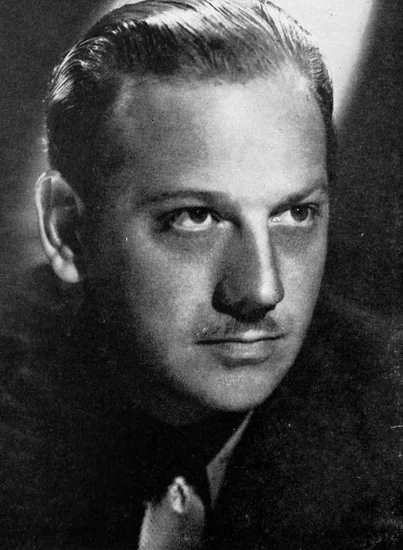
Melvyn Douglas passed away in New York City at age 81, concluding a remarkable career spanning stage and screen. His versatility earned him respect from critics and audiences alike.
Douglas won two Academy Awards for Best Supporting Actor late in his career. His intelligent performances and professional longevity made him one of America’s most respected actors.
1997 – Jeanne Calment, Record Holder

Jeanne Calment died in France at the verified age of 122 years and 164 days, setting the record for the longest confirmed human lifespan. Her extraordinary longevity fascinated scientists and the public.
Calment had witnessed the construction of the Eiffel Tower and met Vincent van Gogh. Her longevity provided valuable insights into aging and human mortality.
2003 – Frederick Chapman Robbins, Nobel Laureate
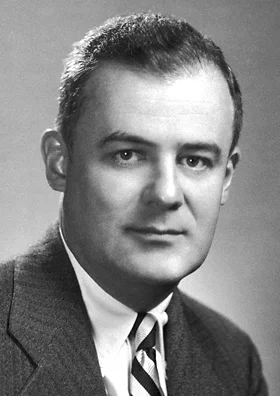
Frederick Chapman Robbins died in Cleveland at age 86, leaving behind groundbreaking contributions to medical science. His research had revolutionized understanding of viral diseases.
Robbins shared the 1954 Nobel Prize in Physiology or Medicine for growing polio virus in tissue culture. His work enabled the development of the polio vaccine that saved millions of lives.
2024 – Tsung-Dao Lee, Physics Pioneer

Tsung-Dao Lee passed away at age 97, concluding a brilliant career in theoretical physics. His revolutionary discoveries challenged fundamental assumptions about the nature of matter.
Lee won the Nobel Prize in Physics in 1957 for discovering parity violation in weak interactions. His work alongside Chen-Ning Yang opened new frontiers in particle physics research.
Holidays and Observances on August 4
Coast Guard Day (United States)
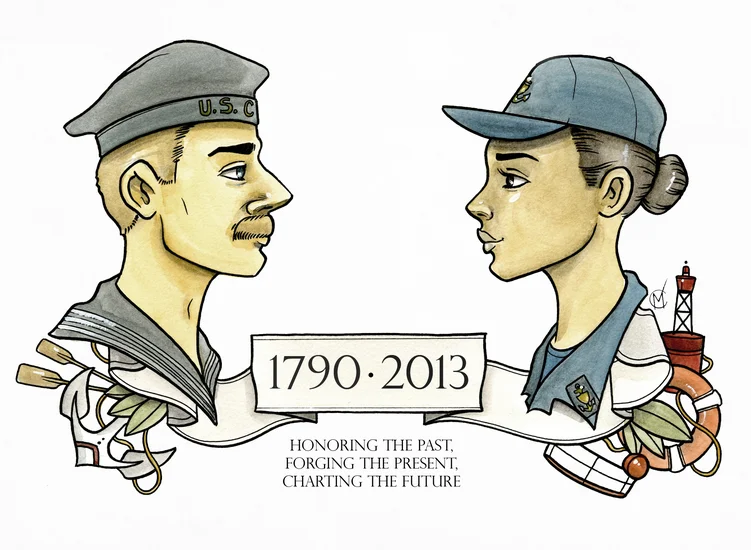
The United States celebrates Coast Guard Day, honoring the brave men and women who protect America’s waters and coastlines. The holiday commemorates the founding of the Coast Guard in 1790.
Coast Guard personnel perform rescue operations, enforce maritime law, and protect national security. Their diverse missions make them essential to American safety and commerce.
Barack Obama Day (Illinois)

Illinois commemorates Barack Obama Day, celebrating the 44th President’s contributions to the state and nation. The holiday recognizes Obama’s historic presidency and continued public service.
Obama began his political career in Illinois, serving in the state legislature and U.S. Senate. His connection to the state remains strong through his ongoing community involvement.
Christian Feast Day Celebrations
Christians worldwide observe the feast day of Saint John Vianney, the patron saint of parish priests. The day also honors various other saints and blessed individuals.
Saint John Vianney’s dedication to pastoral care and spiritual guidance inspired countless clergy members. His feast day reminds Catholics of the importance of priestly service and devotion.
